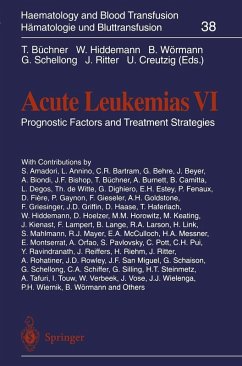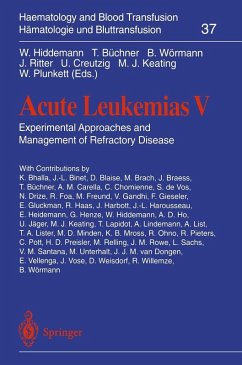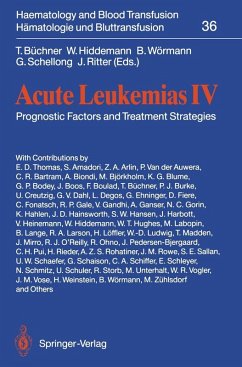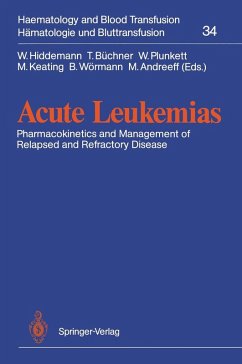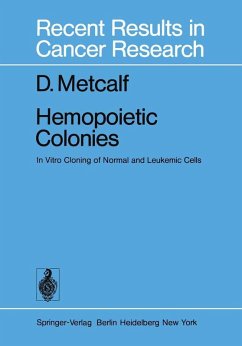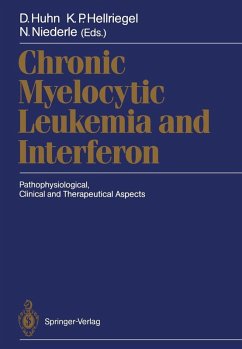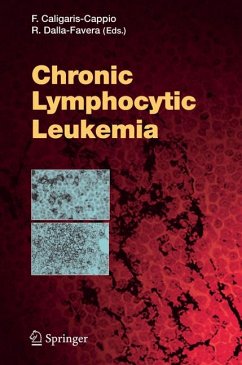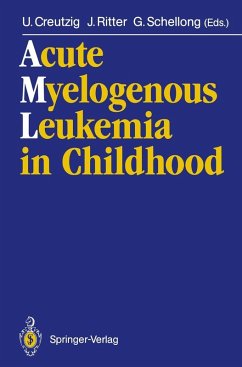
Recent Advances in Cell Biology of Acute Leukemia (eBook, PDF)
Impact on Clinical Diagnosis and Therapy
Redaktion: Ludwig, Wolf-Dieter; Thiel, Eckhard

PAYBACK Punkte
36 °P sammeln!
The development of new techniques such as immuno phenotyping, cytogenetic investigations and, more recently, molecular studies has considerably increased our diagnostic repertoire and broadened our ideas about the biology of acute leukemias. While immunophenotyping with mono clonal antibodies has yielded increased diagnostic precision and made it possible to develop a highly reproducible classification of acute leukemias based on cell-biological features, further insights have been gained into the patho genetic mechanisms involved in leukemogenesis by means of cytogenetic detection of acquired...
The development of new techniques such as immuno phenotyping, cytogenetic investigations and, more recently, molecular studies has considerably increased our diagnostic repertoire and broadened our ideas about the biology of acute leukemias. While immunophenotyping with mono clonal antibodies has yielded increased diagnostic precision and made it possible to develop a highly reproducible classification of acute leukemias based on cell-biological features, further insights have been gained into the patho genetic mechanisms involved in leukemogenesis by means of cytogenetic detection of acquired structural chromosomal abnormalities. Analysis of the leukemia-associated chromo somal breakpoints using molecular techniques can now pinpoint many genomic sites essential for normal develop ment and maturation of hematopoietic cells but functionally disrupted in leukemic cells. The main goal of the international workshop that we held in Berlin with a select group of scientists and clinicians involved in leukemia research was to describe the state of the art and new developments in the immunologic, cytogenetic, and molecular characterization of acute leukemias and to discuss the clinical importance of cell biological features. After introductory survey lectures dealing with the immunological and molecular-biological characteristics of normal vs. malignant lymphatic and myeloid progenitor cells, the workshop centered on con tributions characterizing the immunophenotype and both numerical and structural chromosomal abnormalities in acute leukemias.
Dieser Download kann aus rechtlichen Gründen nur mit Rechnungsadresse in A, B, BG, CY, CZ, D, DK, EW, E, FIN, F, GR, HR, H, IRL, I, LT, L, LR, M, NL, PL, P, R, S, SLO, SK ausgeliefert werden.



